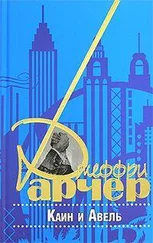The next morning, Sir Hamish sat at his desk listening attentively to David Heath, who felt that because Graham Construction had already built the Glasgow and Edinburgh ring roads any application they made to the Mexican government had to be taken seriously. To Heath’s surprise, Sir Hamish agreed with his project manager and allowed a team of six men to travel to Mexico to obtain the tender documents and research the project.
The research team was led by David Heath, and consisted of three other engineers, a geologist and an accountant. When the team arrived in Mexico they obtained the tender documents from the Minister of Works and settled down to study them minutely. Having pinpointed the major problems, they walked around Mexico City with their ears open and their mouths shut and made a list of the problems they were clearly going to encounter: the impossibility of unloading anything at Vera Cruz and then transporting the cargo to Mexico City without half of the original assignment being stolen, the lack of communications between ministries, and worst of all the attitude of the Mexicans to the dictionary definition of work. But David Heath’s most positive contribution to the list was to discover that each minister had his own outside man, and that man had better be well disposed to Graham Construction if the firm were to be even considered for the short list. Heath immediately sought out the Minister of Works man, one Victor Perez, and took him to an extravagant lunch at the Fonda el Refugio, where both of them nearly ended up drunk, although Heath remained sober enough to agree on all of the necessary terms, conditional upon Sir Hamish’s approval. Having taken every possible precaution, Heath agreed with Perez on a tender figure which was to include the minister’s percentage. Once he had completed the report for his chairman, he flew back to England with his team.
On the evening of David Heath’s return, Sir Hamish retired to bed early to study his project manager’s conclusions. He read the report through the night as others might read a spy story, and was left in no doubt that this was the opportunity he had been looking for to overcome the temporary setbacks Graham Construction was now suffering. Although Sir Hamish would be up against Costains, Sunleys and John Brown, as well as many international companies, he still felt confident that any application he made must have a “fair chance.” On arrival at his office the next morning Sir Hamish sent for David Heath, who was delighted by the chairman’s initial response to his report.
Sir Hamish started speaking as soon as his burly project manager entered the room, not even inviting him to take a seat.
“You must contact our Embassy in Mexico City immediately and inform them of our intentions,” pronounced Sir Hamish. “I may speak to the Ambassador myself,” he said, intending that to be the concluding remark of the interview.
“Useless,” said David Heath.
“I beg your pardon?”
“I don’t wish to appear rude, sir, but it doesn’t work like that any more. Britain is no longer a great power dispensing largesse to all far-flung and grateful recipients.”
“More’s the pity,” said Sir Hamish.
The project manager continued as though he had not heard his chairman.
“The Mexicans now have vast wealth of their own and the United States, Japan, France and Germany keep massive embassies in Mexico City with highly professional trade delegations trying to influence every ministry.”
“But surely history counts for something,” said Sir Hamish. “Wouldn’t they rather deal with an established British company than some upstarts from—?”
“Perhaps, sir, but in the end all that really matters is which minister is in charge of what contract and who is his outside representative.”
Sir Hamish looked puzzled. “Your meaning is obscure to me, Mr. Heath.”
“Allow me to explain, sir. Under the present system in Mexico, each ministry has an allocation of money to spend on projects agreed to by the government. Every Secretary of State is acutely aware that his tenure of office may be very short, so he picks out a major contract for himself from the many available. It’s the one way to ensure a pension for life if the government is changed overnight or the minister simply loses his job.”
“Don’t bandy words with me, Mr. Heath. What you are suggesting is that I should bribe a government official. I have never been involved in that sort of thing in thirty years of business.”
“And I wouldn’t want you to start now,” replied Heath. “The Mexicans are far too experienced in business etiquette for anything as clumsy as that to be suggested, but while the law requires that you appoint a Mexican agent, it must make sense to try and sign up the minister’s man, who in the end is the one person who can ensure that you will be awarded the contract. The system seems to work well, and as long as a minister deals only with reputable international firms and doesn’t become greedy, no one complains. Fail to observe either of those two golden rules and the whole house of cards collapses. The minister ends up in Le Cumberri for thirty years and the company concerned has all its assets expropriated and is banned from any future business dealings in Mexico.”
“I really cannot become involved in such shenanigans,” said Sir Hamish. “I still have my shareholders to consider.”
“ You don’t have to become involved,” Heath rejoined. “After we have tendered for the contract you wait and see if the company has been shortlisted and then, if we have, you wait again to find out if the minister’s man approaches us. I know the man, so if he does make contact we have a deal. After all, Graham Construction is a respectable international company.”
“Precisely, and that’s why it’s against my principles,” said Sir Hamish with hauteur.
“I do hope, Sir Hamish, it’s also against your principles to allow the Germans and the Americans to steal the contract from under our noses.”
Sir Hamish glared back at his project manager but remained silent.
“And I feel I must add, sir,” said David Heath, moving restlessly from foot to foot, “that the pickings in Scotland haven’t exactly yielded a harvest lately.”
“All right, all right, go ahead,” said Sir Hamish reluctantly. “Put in a tender figure for the Mexico City ring road and be warned if I find bribery is involved, on your head be it,” he added, banging his closed fist on the table.
“What tender figure have you settled on, sir?” asked the project manager. “I believe, as I stressed in my report, that we should keep the amount under forty million dollars.”
“Agreed,” said Sir Hamish, who paused for a moment and smiled to himself before saying: “Make it $39,121,110.”
“Why that particular figure, sir?”
“Sentimental reasons,” said Sir Hamish, without further explanation.
David Heath left, pleased that he had convinced his boss to go ahead, but he feared it might in the end prove harder to overcome Sir Hamish’s principles than the entire Mexican government. Nevertheless he filled in the bottom line of the tender as instructed and then had the document signed by three directors including his chairman, as required by Mexican law. He sent the tender by special messenger to be delivered at the Ministry of Buildings in Paseo de la Reforma: when tendering for a contract for over thirty-nine million dollars, one does not send the document by first-class post.
Several weeks passed before the Mexican Embassy in London contacted Sir Hamish, requesting that he travel to Mexico City for a meeting with Manuel Unichurtu, the minister concerned with the city’s ring road project. Sir Hamish remained skeptical, but David Heath was jubilant, because he had already learned through another source that Graham Construction was the only tender being seriously considered at that moment, although there were one or two outstanding items still to be agreed on. David Heath knew exactly what that meant.
Читать дальше












